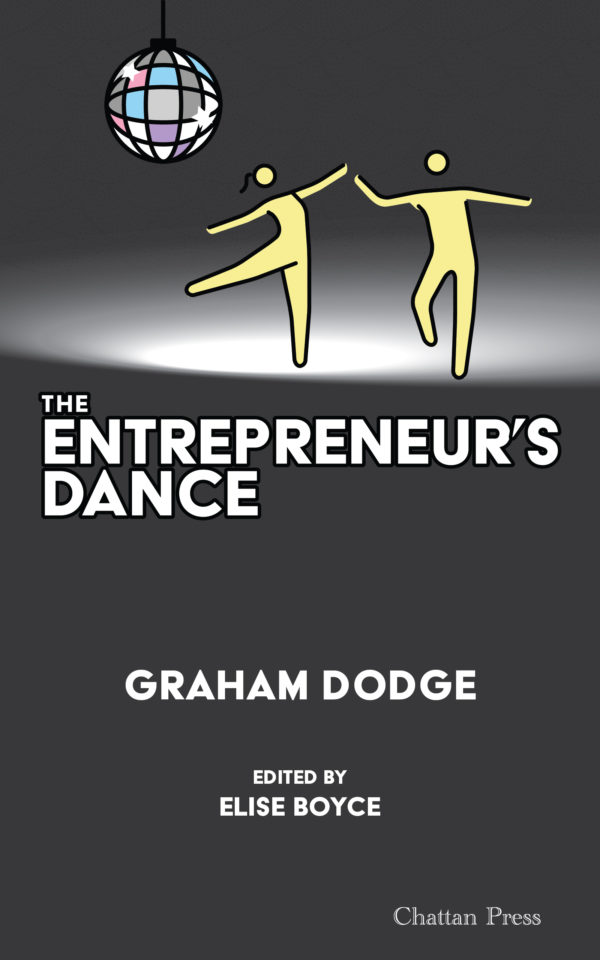Graham Dodge distilled the lessons he’s learned as a Baltimore-area entrepreneur — one who founded companies like illness-tracking startup Sickweather and runs the nonprofit Mid-Atlantic Gigabit Innovation Collaboratory (MAGIC) and PathCheck Foundation — into a book to help other entrepreneurs on their journeys.
“The Entrepreneur’s Dance,” according to Dodge, draws from his varied entrepreneurial experiences in Maryland over the years. As a technologist, Dodge is experienced in bringing to market large consumer platforms that use big data and prediction modeling. He’s been in work groups and served on boards for the Centers for Disease Control and Prevention, the National Voluntary Organizations Active in Disaster and the Kennedy Krieger Institute’s PACT: Helping Children with Special Needs center.
He’s also made the rounds as an entrepreneur. Through it all, Dodge maintains a special place in his heart for Westminster, the seat of Carroll County, and other communities with tech aspirations outside of Silicon Valley. I chatted with Dodge over Technical.ly’s Slack to learn a bit more about what he wants readers to get out of his book. The chat offered more insight on both what makes his perspective unique for Baltimore entrepreneurs and how the creation of the book was a family affair.
Learn more about Dodge and “The Entrepreneur’s Dance,” whose electronic version is free via Amazon until Wednesday, below. This interview has been lightly edited for clarity.
###
Technical.ly: What do you want readers to get out of this book?
Graham Dodge: This book is to help aspiring and recovering entrepreneurs find their groove. There are so many lessons I learned the hard way that can be taught without making as many mistakes and missteps. I hope that it inspires and motivates other entrepreneurs to have the courage and foresight to take that first step.
Could you elaborate more on the “recovering entrepreneurs” concept?
Entrepreneurs who have been discouraged by failure or overwhelmed by success. For them, I hope this book helps them realize who they are and why starting a business means so much to them. To elevate something that may seem transactional to many to the form of art.
What inspired you to sit down and write the book? How long has this idea been germinating in your head?
I had been kicking around the idea since the pandemic started — so, in 2020 — which gave me a lot of time to reflect on my own experiences and the role that timing has played in so many of them. Once I started thinking of timing like rhythm in music and dance, then the metaphor started helping me think of how to give advice and teach those lessons to other entrepreneurs, which I do every week in my various roles.
My mother is a writer and competitive dancer so she helped me actually get my ideas on paper, so to speak, and finally publish the book. She’s the editor. She once won “Sexiest Dancer” at the Latin Palace in Baltimore. Lol. She was in her late 50s at that time, if I recall correctly.

What do you think is unique about the book?
I think what makes “Entrepreneur’s Dance” unique from, say, all the books written by Brad Feld, whom I reference in my own book, is that it offers a perspective of entrepreneurship as being its own art form that can be intuitive and improved upon with practice. So many times, when people are transferring an idea or technology outside the four walls of an institution, they have an analytical framework that doesn’t always help them with commercialization and understanding value. They aren’t using the other side of their brain like an artist or dancer might, and so they don’t know what to expect in terms of the emotional side of entrepreneurship, and all that comes with it: success, failure, etc.
Can you speak to anything Baltimore or Maryland entrepreneurs can get from the book in particular?
These themes are universal, so it’s not necessarily anything that pertains to Baltimore or Maryland entrepreneurs. However, given the footprint and influence of Johns Hopkins, I can certainly say that the types of first-time entrepreneurs that I just described above are perhaps more prevalent here than in, say, Silicon Valley, where the commercialization pipeline between research and commercialization, thanks to longstanding academic interdependency with their local tech industries, is much more streamlined.
But that’s why I’m a mentor-in-residence at Johns Hopkins and why I’m also working through MAGIC to create academic interdependency in Carroll County’s autonomous robotics industry.
Is there anything else you feel people should know about the book?
I acknowledge and thank local luminaries like Deb Tillett and Paul Palmieri among other mentors, investors, co-conspirators, etc for their help. Of course, most of what I learned was as the founding CEO of Sickweather, which I started in Baltimore. Almost all of the anecdotes and stories are about other Maryland-based entrepreneurs that I’ve worked with or mentored along the way.
Get the book for free until Aug. 31






